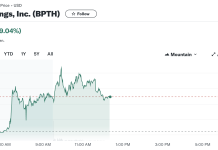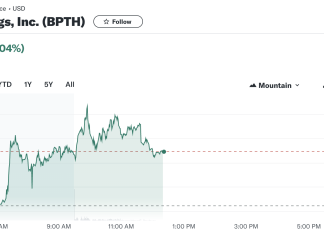Oncolytics Bioetch Inc. (NASDAQ: ONCY) has presented a recruitment update in the Phase 1/2 GOBLET trial in a poster at the 2022 American Society of Clinical Oncology Gastrointestinal Cancers Symposium (ASCO-GI).
Study evaluating combination treatment of pelareorep and atezolizuimab
Germany-based academic cooperative medical oncology group, AIO, is leading the GOBLET trial. The study seeks to assess the efficacy and safety of pelareorep combined with Roche’s anti-PD-L1 checkpoint inhibitor atezolizuimab in advanced pancreatic, anal and colorectal cancers. Notably, two of the trial’s four cohorts have 3 patient safety run-ins for third-line metastatic colorectal cancer and first-line metastatic pancreatic cancer. Already safety run-ins are complete. The trial is still underway, and patients are scheduled to be enrolled at 14 clinical study locations across Germany.
GOBLET study Principal Investigator Dirk Arnold said, “There is a pressing unmet need for agents that can synergize with immune checkpoint inhibitors (ICI) in gastrointestinal (GI) cancers, as fewer than half of these patients respond to ICI monotherapy. These low response rates are driven by immunosuppressive tumor microenvironments, which pelareorep has been shown to reverse in prior clinical studies in GI, breast, and hematological cancers.”
Arnold explained that they believe pelareorep can boost the percentage of patients with GI cancer that react to checkpoint inhibitors. The GOBLET study is testing this theory, and so far, results have been encouraging.
Study expands on previous proof-of-concept study findings
The GOBLET research expands on experimental proof-of-concept results for the previously released pelareorep-checkpoint inhibitor combination treatment in pancreatic cancer. Early clinical evidence showed that pelareorep-based combination therapies induced adaptive immunity and resulted in a more than 90% clinical benefit frequency in KRAS-mutated patients with colorectal cancer and close to 80% boost in progression-free survival patients with pancreatic cancer with low CEACAM6 expression.
Besides assessing the efficacy and safety of pelareorep-atezolizumab combination treatment, the researchers hope to show that CEACAM6 and T cell clonality can be used as predictive biomarkers in subsequent registration studies, allowing for better patient screening and increased success rates.















